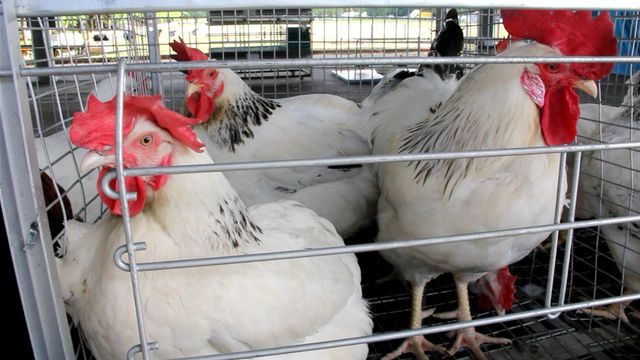Bird flu found in NC dairy cows, risk is low for humans
Bird flu has been identified in a dairy herd in North Carolina.
Posted — UpdatedHighly pathogenic avian influenza, or bird flu, was recently detected in a dairy herd in North Carolina, according to the state Department of Agriculture and Consumer Services.
The avian flu, detected by the National Veterinary Services Laboratory (NVSL), had already been detected in dairy herds in Texas, Kansas, Michigan, Idaho, New Mexico, and Ohio.
Movement of cattle from affected herds in these states to North Carolina has been suspended.
By law, milk bought in North Carolina is required to be pasteurized -- a process that would kill bird flu should any milk from an infected herd make it into the supply.
Steve Troxler, the state's agriculture commissioner, said the Food and Drug Administration has "no concern about the safety or availability of pasteurized milk products nationwide.”
“This is an evolving situation, and we are waiting for more diagnostics from NVSL and will work collaboratively with our federal partners and dairy farmers in North Carolina,” said Troxler. “We have spent years developing methods to handle HPAI in poultry, but this is new and we are working with our state and federal partners to develop protocols to handle this situation."
Outbreaks of avian flu are being reported across multiple states. The virus can spread to other animals, like cattle.
Dr. Michael Martin, the state veterinarian for North Carolina, said the risk of human infection remains extremely low. Last week, the second case of human infection in the U.S. was recorded after a worker on a dairy farm in Texas tested positive.
“Right now, any milk that’s coming from an infected cow is getting disposed of. And pasteurization of milk is thankfully a standard in the United States and the pasteurization of milk kills all sorts of bugs,” Martin said.
Health officials warn consumers not to drink raw milk. In North Carolina, the sale of raw milk is prohibited.
The state Department of Health and Human Services released the following statement in connection with the state Department of Agriculture and Consumer Services:
Also in 2022, North Carolina became the first state to record an instance of bird flu spreading to a black bear.
“The animals that are picking this up, like a bear, come across a deceased waterfowl or something, and they consumed it,” said N.C. Wildlife Biologist Greg Batts. “The same could be said for a hawk.”
• Credits
Copyright 2024 by Capitol Broadcasting Company. All rights reserved. This material may not be published, broadcast, rewritten or redistributed.






